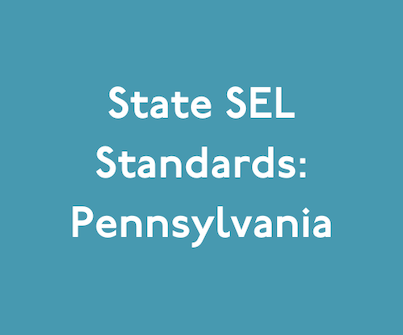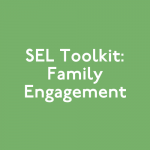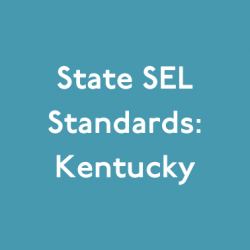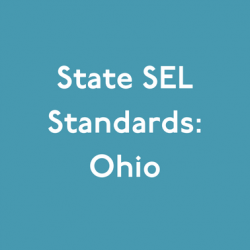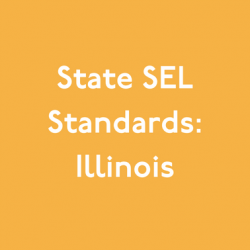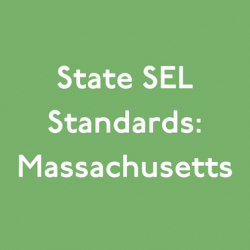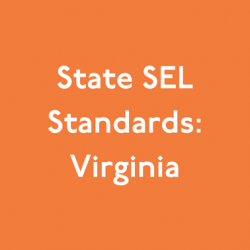In Pennsylvania, social emotional learning is reinforced in PreK-12th grade as part of the career-ready skills continuum. As one of Governor Wolf’s goals, “Schools that Teach,” students develop the ability to regulate emotions, collaborate amongst diversity, and demonstrate empathy and respect in their choices in order to prepare them for careers after high school.
But besides setting students up for success, there are immediate emotional needs present in the students of Pennsylvania, which a strategic SEL initiative can help address.
Interested in learning more about how Move This World aligns with Pennsylvania’s state SEL standards and guidelines?
Fill out the form below.
According to the most recent Pennsylvania Youth Survey (PAYS 2017), 38% of students reported that they felt depressed or sad most days in the past 12 months, 41% of students reported experiencing the death of a close family member or friend in the past year, and 17% of students reported they had considered suicide in the past year. This last group includes a startling 20% of high school seniors reporting that they have considered suicide in the past year.
It’s not enough to give students the social emotional skills they’ll need for future careers – young people in Pennsylvania need comprehensive social and emotional supports right now.
What do the Pennsylvania Social Emotional Learning Standards require?
“All children benefit from safe, nurturing environments, clear and consistent routines, and effective caregivers who understand children’s behavior as attempts to communicate needs.”
-Pennsylvania’s Social and Emotional Development Standards
State standards for social emotional learning have been developed for early childhood through 2nd grade. Additionally, the PA Career Ready Skills Continuum supports students in PreK-12th grade and is broken down into three categories:
-
Self-Awareness and Self-Management
-
Establishing and Maintaining Relationships
-
Social Problem-Solving Skills
Self-Awareness and Self-Management
The ability to recognize and regulate emotions can prepare students for a variety of related employable skills, including reliability, teamwork, adaptability, initiative, and planning & organizing. Students work towards objectives like:
-
Recognize and label basic feelings. (PreK-K)
-
Identify different ways of expressing a feeling. (Grades 1-5)
-
Identify behavioral expressions of feelings within a context. (Grades 6-8)
-
Evaluate behaviors in relation to the impact on self and others. (Grades 9-12)
Embedding social emotional learning into the school day on a consistent basis helps students practice recognizing, discussing, expressing, and regulating emotions. Movement and creative expression are powerful ways to help students practice identifying, understanding, and expressing their emotions. Additionally, kinesthetic learning provides students with an opportunity to physically embody emotions and understand how emotions impact not only them, but the people around them, too. By learning how to understand and manage emotions through movement, students get to practice healthy ways to express their emotions.
Establishing and Maintaining Relationships
The ability to communicate and collaborate amongst diversity can prepare students with employable skills like problem solving, critical thinking, teamwork, and professionalism. Students work towards objectives like:
-
Recognize that conflict occurs and identify ways to respond. (PreK-K)
-
Demonstrate respect for the uniqueness of others. (Grades 1-5)
-
Explain how empathy and perspective-taking foster relationship building. (Grades 6-8)
-
Explain how you situate yourself in a diverse community. (Grades 9-12)
Students who have developed the skills and strategies to collaborate are able to work more successfully in a diverse group environment. It’s important to build these skills from the ground up, so while explicit SEL standards are only in place through 2nd grade, the career-ready competencies continue to support social and emotional development through 12th grade.
A multi-tiered system of supports (MTSS) helps to promote social and emotional development across PreK-12th grades. A tier 1 support can create a culture of social and emotional awareness by using a common vocabulary that supports social emotional learning through active, persistent practice and repetition. For example, schools using Move This World develop a common language around emotion vocabulary and management strategies (Emogers), which all students and teachers learn. When navigating conflict, students can identify and use specific, universal Emogers to help them resolve the conflict positively. Emotional Building Blocks also help provide a common language around emotion or feeling words, which all stakeholders in the community can use when supporting students or collaborating with colleagues.
A tier 1 support is also important in developing foundational SEL skills like asking for help, which is critical given the alarming statistics related to suicide from the 2017 PAYS. Tier 1 supports like Move This World, give students the language to express how they’re feeling authentically and cultivate a safe space to do so. Teachers have opportunities to check in and hopefully can identify a student in need of support more proactively than if the school did not have a tier 1 support. Learn more about how to integrate social emotional learning into your MTSS framework.
Social Problem-Solving Skills
Learning how to demonstrate empathy and make respectful choices will impact students in their day-to-day lives by preparing them to make responsible and healthy decisions. Additionally, these skills relate to employability skills like teamwork, integrity, customer focus, and critical thinking. Students work towards objectives like:
-
Identify similarities and differences of various social contexts. (PreK-K)
-
Respond to others given a sense of the others’ point of view. (Grades 1-5)
-
Analyze various perspectives on a situation. (Grades 6-8)
-
Situate self in any social context as a means to determine a response. (Grades 9-12)
Practicing problem-solving skills through movement allows students to role play various scenarios of conflict resolution and empathize with different sides of the conflict. Pennsylvania’s social emotional learning standards explicitly ask students to be able to develop problem-solving skills that are rooted in empathy and respect. A comprehensive tier 1 SEL support like Move This World helps schools build consistency and alignment across skills.
Supporting the Standards
Developing skills within self-awareness and self-management, developing and maintaining relationships, and social problem-solving skills allows students to spend time exploring their interests and passions, set goals, learn to collaborate with diverse peers, develop habits of reflection, and learn to manage stress so they can navigate conflict and persist in the face of challenges. A student of Madison Elementary School in Michigan explains, “We use those [Move This World] strategies when we’re angry, sad, or have any emotion we recognize. It helps us be successful.”
Move This World’s curriculum cultivates individual awareness and regulation early on, and grows with the students as they progress throughout the district to help develop skills and strategies related to social awareness, relationship building, and responsible decision making. To learn more about how Move This World can support your school or district, connect with our team here.
